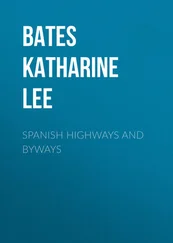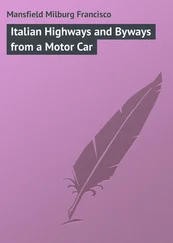William Andrews - Literary Byways
Здесь есть возможность читать онлайн «William Andrews - Literary Byways» — ознакомительный отрывок электронной книги совершенно бесплатно, а после прочтения отрывка купить полную версию. В некоторых случаях можно слушать аудио, скачать через торрент в формате fb2 и присутствует краткое содержание. Жанр: foreign_antique, foreign_prose, на английском языке. Описание произведения, (предисловие) а так же отзывы посетителей доступны на портале библиотеки ЛибКат.
- Название:Literary Byways
- Автор:
- Жанр:
- Год:неизвестен
- ISBN:нет данных
- Рейтинг книги:3 / 5. Голосов: 1
-
Избранное:Добавить в избранное
- Отзывы:
-
Ваша оценка:
- 60
- 1
- 2
- 3
- 4
- 5
Literary Byways: краткое содержание, описание и аннотация
Предлагаем к чтению аннотацию, описание, краткое содержание или предисловие (зависит от того, что написал сам автор книги «Literary Byways»). Если вы не нашли необходимую информацию о книге — напишите в комментариях, мы постараемся отыскать её.
Literary Byways — читать онлайн ознакомительный отрывок
Ниже представлен текст книги, разбитый по страницам. Система сохранения места последней прочитанной страницы, позволяет с удобством читать онлайн бесплатно книгу «Literary Byways», без необходимости каждый раз заново искать на чём Вы остановились. Поставьте закладку, и сможете в любой момент перейти на страницу, на которой закончили чтение.
Интервал:
Закладка:
One of his books, he says, was penned as a private diary, then he made a rough and rapid manuscript with a lead pencil, and subsequently rewrote it for the printer, especially with a view to concentration. Mr. Hamerton states that he used shorthand for one volume, which enabled him to write it quickly, but he found much trouble in reading it, and he does not recommend it for literary purposes.
Referring to work, “The Intellectual Life” was begun in quite a different form (not in letters), and many pages were written before he concluded that it was heavy, and that letters would give a lighter and less didactic appearance. We are told that his story “Marmone” was partly written and put aside, and it was not until solicited by Messrs. Roberts Brothers for a book for their “No Name Series,” that he completed it. The earlier part of the novel was written three times over.
In concluding his letter, he says that “I have sometimes, instead of rewriting, sent a corrected rough draft to a type-writer. There is an economy of time in this, and the work can be corrected in the type-writer’s copy; but, on the whole, for very careful finished work, I think the old plan of rewriting the whole manuscript is superior.”
Mr. G. A. Sala used commonly to be regarded as a journalist, but he ranks high as an author. He has written nearly a library of books of travel, essays, and novels, which have been much praised by the critics, and largely circulated. His father was an Italian gentleman, who married a charming and accomplished English lady, famous in her day as a vocalist. Between the ages of six and nine he was totally blind. After regaining his sight he was placed in the Collège Bourbon, Paris, for a couple of years, and subsequently removed to Turnham Green, near London, with a view of thoroughly acquiring his mother tongue which he spoke imperfectly, in fact he was almost ignorant of it. His parents intended him for an artist, but circumstances compelled him to relinquish art in its highest form. Possessing the happy faculty of effective sketching, he produced hundreds of political caricatures and pictorial skits on passing events; these found a ready sale. His eyesight failing, he had to give up lithographing and engraving, and to try other means of making a living. After a variety of engagements, an accident led to his finding his right vocation. One night he was by an oversight locked out of his house, and had to pass the night perambulating the streets. It occurred to him that he might make it a subject of an article, which he accordingly wrote under the title of “The Key of the Street,” and submitted it to Charles Dickens. The famous novelist at once recognised his genius, and encouraged him to become a constant contributor to Household Words . At the suggestion of Dickens he entered the lists of journalism, and won the highest place amongst pressmen. He was known as “The Prince of Journalists.” Sala joined the staff of the Daily Telegraph , and did much to make the reputation of that brilliant journal. He represented it in all parts of the world, and his remuneration equalled the pay of an ambassador. Its columns have been enriched with several thousand leading articles from his facile pen on almost every topic.
Sala was the owner of a large and valuable library, but his chief source of information was found in his common-place book. In it he had brought together facts and illustrations on all kinds of subjects calculated to aid him in his journalistic labours. This wonderful book has often been described, the best account of it appears in “Living London.” “Scarcely a week passes,” says Mr. Sala, “without bringing me letters from correspondents who ask me to explain my own system of keeping a common-place book. I have but one such system, and it possesses one merit, that of rugged simplicity. Take a book, large or small, according to the size of your handwriting, and take care that at the end of the book there shall be plenty of space for an index. Begin at the beginning, and make your entries precisely as they occur to you in unordered sequence. But after each entry place a little circle, or oval, or parenthesis ( ), and in a portion of these spaces place consecutive numbers. Here is a model page taken at random from a book which may have been in keeping for years: —
‘The Prince of Wales wore the robes of the Garter at his marriage in St. George’s Chapel, Windsor. All the other K.Gs present wore their robes and collars. Mr. W. P. Frith, R.A., who was to paint a picture of the wedding for the Queen, stood close to the reredos, to the right, looking from the organ-loft (1023). Just before the liberation in 1859 of Lombardy from the domination of Austria, the audiences in the Italian theatres used to give vent to their pent-up patriotism by shouting at the close of each performance “Viva Verdi!” The initiated knew that this was meant to signify Viva V (for Victor) E (for Emmanuele) R (for Re) D I (for d’Italia) (1024). Old Hungerford Market was never very successful as a fish market; but according to Seyer it was always very well supplied with shrimps. In Hungerford Street, leading to the market, there was a pastrycook’s famous shop, at which the penny buns were as good as those sold at Farrance’s in Cockspur Street (1025).’
“Now, all you have to do is, immediately you have made your entry, to index it; and if you will only spare the time and patience and perseverance, to cross index it. Thus under letter W you will write, ‘Wales, Prince of, married in Robes of the Garter’ (1023); under G, ‘Garter, Robes of, worn by P. of W. at his Marriage’ (1023); under F, ‘W. P. Frith, R.A., present at the Marriage of P. of W.’ (1023). Thus also, ‘Verdi, Victor Emmanuel,’ and ‘Italy’ will be indexed under their respective letters ‘V’ and ‘I,’ and be referable to at the number (1024). I have one common-place book that has been ‘cooking’ ever since 1858, and is not half finished yet. The last entry is numbered (5068), and refers to Sir Thomas Roe, Ambassador from James the First of England to the Emperor Jehan Guize, commonly called the Great Mogul. The number (5068) is referred to under the letters R (for Roe), J (for James I.), J (for Jehan Guize), M (for Mogul), and A (for Ambassadors). By means of a rigidly pursued system of indexing and cross indexing (so earnestly recommended by Henry Brougham) you can put your hand at once on the information bearing on the particular subject which claims your attention.”
Mr. Sala also said: – “I believe this system strengthens and disciplines the memory, and keeps it green. It is a very good mental exercise to read a page or two of the index alone, from time to time. You will be astonished at the number of bright nuggets of fact which will crop up from the rock of half forgetfulness. Finally, never allow your index to fall into arrear, and write the figures in your circumscribed spaces in red ink. The corresponding ones in the index may be in black.”
It was from this mine of literary nuggets that he used to obtain the materials for his charming papers which amused and instructed the reader.
Another celebrated modern journalist and author is Mr. Andrew Lang. He is just the contrary of Mr. Sala in his methods of work. Mr. Lang seems to pride himself on the fact that he has no other aid to writing except an excellent memory. He does not trouble himself about books of reference, and says he has not one of any sort, not even a classical dictionary, in his house. Mr. Lang is certainly a clever writer, and manages to produce much pleasant reading, but his contributions to the magazines and newspapers lack the interesting facts which Mr. Sala placed so pleasantly before the public in his racy and able articles. Mr. Lang devotes his mornings to writing books and magazine articles, and the afternoons to penning leaders for the newspapers.
Читать дальшеИнтервал:
Закладка:
Похожие книги на «Literary Byways»
Представляем Вашему вниманию похожие книги на «Literary Byways» списком для выбора. Мы отобрали схожую по названию и смыслу литературу в надежде предоставить читателям больше вариантов отыскать новые, интересные, ещё непрочитанные произведения.
Обсуждение, отзывы о книге «Literary Byways» и просто собственные мнения читателей. Оставьте ваши комментарии, напишите, что Вы думаете о произведении, его смысле или главных героях. Укажите что конкретно понравилось, а что нет, и почему Вы так считаете.












